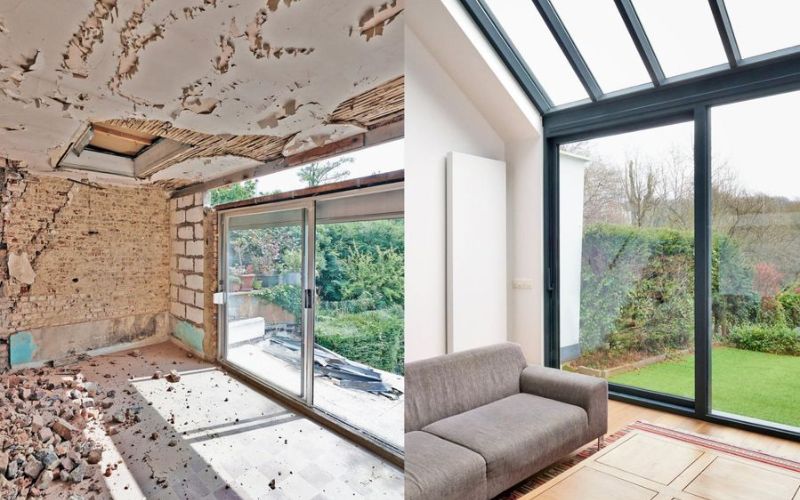Last Updated on January 24, 2024 by CREW Editorial
A guide for sellers sealing the deal on a property in Canada
You’ve had your hopes on selling your home, and now that the time has finally come, you’ve found the perfect future owners for the home you’ve spent years of your life in. What comes next in the sale process?
There are certain obligations and responsibilities that come with the title of being a home-seller. Whether you’ve already bought your next home, or are planning on buying after you sell, before any type of sale or transaction takes place, you must know the seller’s responsibility after closing.
Working with a real estate agent
Firstly, working with a real estate agent or other industry professionals can help you navigate real estate transactions. Working with real estate agents can take a lot of the stress out of the process of selling your home. A seller’s real estate agent is experienced in selling homes, property taxes, disclosure laws, contracts, home inspection and anything else related to seller responsibility.
Using a real estate agent or industry professional doesn’t only benefit the seller, it also benefits people looking to buy a home as agents can greatly impact your chances of landing the house of your dreams while being able to spot any problems or defects. Ultimately, agents know which steps need to be taken as a buyer and as a seller. This includes things like closing costs, any home repairs, clauses, any issues and the overall condition of the property. Consulting with an agent for expert advice isn’t a bad idea in any home sale situation. In addition, agents can also help a buyer and seller reach an agreement on an escrow agent (but more on that below).
Prior to closing
Escrow
When your home goes into escrow, which is a temporary time period where a temporary condition of the item, in this case, a house, has been transferred to a third party. This is typically done on behalf of the buyers and sellers. Your mortgage lender will typically collect the amount of property tax and homeowners insurance you pay, and withhold this amount until predefined conditions are meant. In terms of real estate, this usually means earnest money, down payments or transferring of property deeds. By putting financial assets in escrow, both parties can be assured that their money will be safe through the third party.
Home inspection
Before closing on a house or buying a home, it is always recommended to seek the expert advice of a home inspector. These professionals make sure there are no defects or issues with the home you’re considering buying. They also assess the general condition of the home and can give you an idea of when a problem may occur within the house. For a buyer, this could be potentially useful as it can allow you to put replacement of specific appliances into your contract. For a seller, this may make home repair a key part of your due diligence.
Disclosure
Unless a seller opts to pay for a credit to the buyer before closing, they’ll have to provide full disclosure on the property’s condition that may affect the overall value of a house. What a seller must disclose varies, however, if working with real estate agents, it’s always wiser to err on the side of caution and disclose any necessary information to the buyer. In general, the seller should disclose any damage to the home that will require repair and any defects, hazards, water damage or things that may negatively affect the inspection report, like a pipe blockage. Failure to disclose information may cause a buyer to file a lawsuit against the seller.
Closing costs
One of the things sellers often don’t take into account when they’re working to close the deal is the cost to the owner. In addition to agents, a seller may want to hire a law attorney for any legal advice during the sale of the home. Average closing cost can vary, but it’s usually anywhere from 1.5% to 4% of your total purchase price. Typical closing costs include land transfer tax, real estate attorney fees, various insurance and mortgage ownership transfer registration.
However, the cost associating with closing on your property is often worth it when buying a home that better suits your needs. In the long run, this could also save you money by making sure you close properly and avoid any problems with small claims court.
Legal issues
Although purchasing real estate is one of the safest ways to invest, there are still risks associated with housing investments. This is why a proper home inspection is needed to ensure you’re buying something that you know is of decent quality. No one has intentions to sell or buy a home for the sole purpose of causing legal issues. However, if the buyer has reason to believe the home seller withheld information about a material defect, they may be left with a sour taste in their mouths and might try to get a price reduction on their home.
That’s why working with a home inspector for a thorough initial inspection and final walk-through is essential to properly close your home. Buyers want to know about any potential repairs or issues before making an offer and want to ensure the house is in good condition before signing a contract. Sellers must execute proper due diligence to ensure best practices and to avoid recourse on future investments.
The best way to protect yourself against any legal action is to fill out a disclosure form that informs the potential buyers of repairs needed before the final walk-through and drawing up a sales contract. Buyers are often suggested to try other means of mediation before bringing something to court, like asking for a demand letter or other actions advised by their attorney. However, if you work with your legal counsel and real estate agent, they’ll give you the proper information for closing on your home without causing legal problems.
Home repairs
When it comes to the sales contract, often defects and home repair are some of the biggest problems to arise. Both parties must agree on the conditions of the sale and any repairs or replacements that an inspector may say needs to be done. Of course, some buyers may be interested in a fixer-upper, but that is not always the case.
When a homeowner lets the buyer know of potential defects or a potential problem, it often causes the buyer to shy away from putting in an offer with an escalation clause. A seller also needs to be careful when agreeing to repairs without an attorney present as things as simple as a phone number or email address can compromise the seller if legal action is threatened or taken. It’s always in the seller’s best interest to consult with their legal agent or attorney in these situations.
Moving out
The best part of closing on your home and working out all the kinks involved with the sale is getting to move out! After going through escrow and signing every contract and going through every inspection, it’s time to get on out and move onto your next house. Depending on your contract, you may have time between the sale and moving out, or you may be immediately getting new keys and heading to your new property within a week of selling.
In certain circumstances, a seller will be able to compromise their move-out date. However, negotiating must be done before closing. If the seller chooses to stay in the home longer than the set contract date, it is the seller’s responsibility to pay the buyer or new owner rent to cover the cost. Once you’ve completed the closing process, the home belongs to the buyer and any financial problems would be their responsibility. This could cause recourse on their loans and could make acquiring loans for anything impossible in the future for these people.
Utilizing seller responsibility after closing
If you know the ins and outs of the responsibilities of being a seller during the closing process, you’re more likely to be successful. Working with a real estate agent or attorney can help you navigate the complicated world of clauses, contracts and closing. They can hook you up with a reputable inspector that can help assess and problems and defects that can ultimately affect the value of your home. Furthermore, agents can help you find the best buyer for your house. You could even choose the same agent you used when you were a buyer!
If you know what you have to do to make the deal work, odds are you’re going to find the perfect buyer for your property. Whether you go through escrow or are in the home inspection process, having some key advice can always help you overcome potential problems. If you have the tools to sell your home without having the buyer file a lawsuit, it’s definitely in your best interest!
The reality of real estate
In Canada, real estate is rising at exponential rates which are making selling homes all the more appealing for homeowners looking to cash in on their initial investments. If you’re able to make a profit through selling your home, it would be smart to jump on that opportunity while the market is still red hot. Getting in on cheaper closing costs and a rapidly rising market will ultimately save investors money and help them make an even better profit on their investment property.
It’s no secret that the Canadian real estate market is booming and showing few signs of slowing down, but something homeowners can take comfort in is that they’ve decided to secure their assets with a physical investment that will ultimately increase in value over time. If you’re equipped with the knowledge to make the most out of any problems and find creative solutions then you’ll be able to reap the benefits of Canada’s opulent real estate landscape.
You may want to sell your home while you’re able to cash in on these sky-high home prices and stimulate the economy. It’s never been easier to make a safe investment through a home and reap the benefits of a secondary property or your retirement. You can invest in a second home, a vacation house, a commercial building or a rental property. Some people think that real estate investment is boring and there isn’t much leeway in terms of what you can do with your investment property, but they say “home is what you make it” and your investment returns reflect that.









